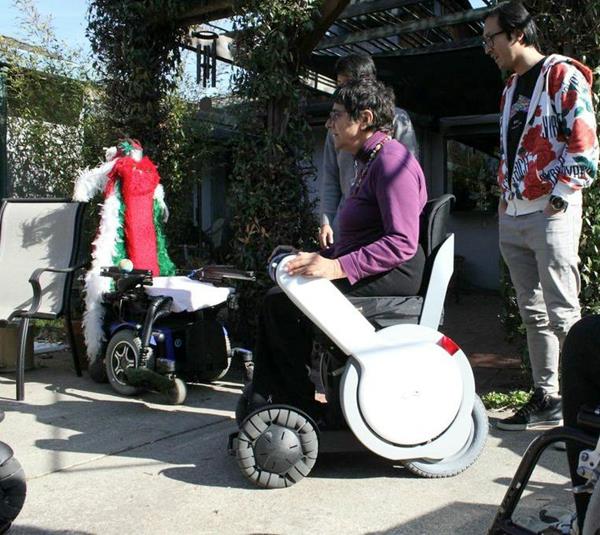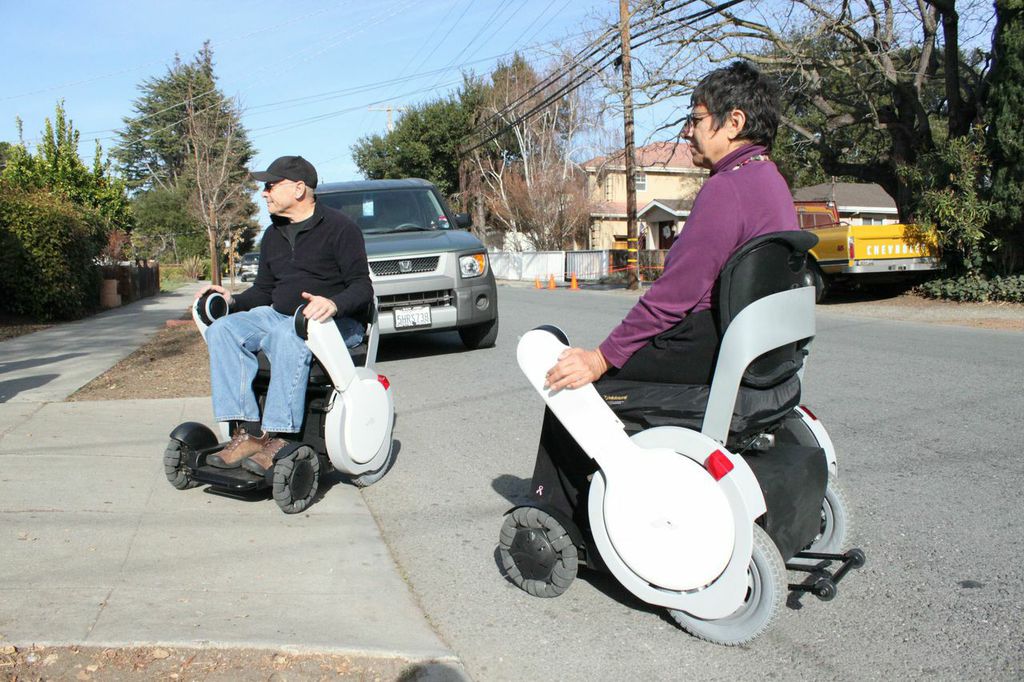 Molly—an early supporter of WHILL—sits with perfect posture in her chair and gestures with her arms at the various parts of the garden that she maintains—remarkable feats given the prognosis delivered to her in 1995. Refusing to accept the level of disability that doctors suggested, Molly has made a remarkable recovery by turning to non-traditional therapies and practices. Before her accident, Molly practiced the martial art of Aikido which contributed to her heightened control and awareness of her body—a skill that would serve her well as she sought to regain movement in her limbs and core after the accident. Inspired by salamanders’ ability to regrow lost tails and extending this idea to humans, Molly spent painstaking hours watching videos of babies learning to move and attempting to recreate these motions. In addition to her returning to Aikido, Molly has used her familiarity with Continuum, yoga, breath work, acupuncture, chiropractic, Reiki, singing, massage, warm water pool therapy and horseback riding as therapy throughout her recovery process. Warm water pool therapy has been and continues to be essential to her recovery process, helping realign her spine, strengthening her body through resistance work and being completely free to move.
Molly—an early supporter of WHILL—sits with perfect posture in her chair and gestures with her arms at the various parts of the garden that she maintains—remarkable feats given the prognosis delivered to her in 1995. Refusing to accept the level of disability that doctors suggested, Molly has made a remarkable recovery by turning to non-traditional therapies and practices. Before her accident, Molly practiced the martial art of Aikido which contributed to her heightened control and awareness of her body—a skill that would serve her well as she sought to regain movement in her limbs and core after the accident. Inspired by salamanders’ ability to regrow lost tails and extending this idea to humans, Molly spent painstaking hours watching videos of babies learning to move and attempting to recreate these motions. In addition to her returning to Aikido, Molly has used her familiarity with Continuum, yoga, breath work, acupuncture, chiropractic, Reiki, singing, massage, warm water pool therapy and horseback riding as therapy throughout her recovery process. Warm water pool therapy has been and continues to be essential to her recovery process, helping realign her spine, strengthening her body through resistance work and being completely free to move.

In addition to dedicating time to her ongoing recovery and physical well-being, Molly and her husband, Jeramy, run their own non profit called “Ability Production” where she provides information from personal experience and mentors people with traumatic injury. As an architectural designer with decades of experience, Molly consults on building projects, focusing through the eyes of accessible and universal design principles.
WHILL is a great supplement to her independent and ambitious lifestyle. She praises WHILL engineers’ “eye for design” and describes the company as “forward thinking.” Molly admires that when she is in Model A, people are attracted to speaking to the person who is using the device rather than succumbing to the stigma of disabled people as “unseen.” She says it is very obvious that the engineers at WHILL included users as a potent source of information to inform the design process – and this leads to a product that is as functional as it is beautiful. WHILL is thrilled to have created technology that can assist amazing people like Molly in achieving things that are thought to be impossible – we look forward to incorporating her feedback as we continue to improve our device and grow our company.
To read about the features of WHILL Model A that give Molly and other people with disabilities the freedom and independence that they work hard for, please visit www.whill.us/features.